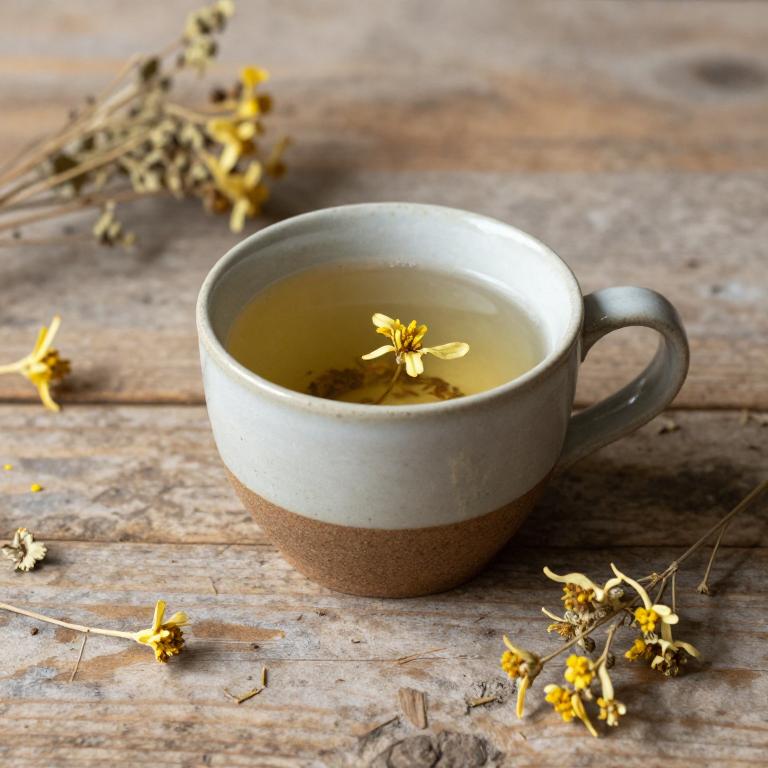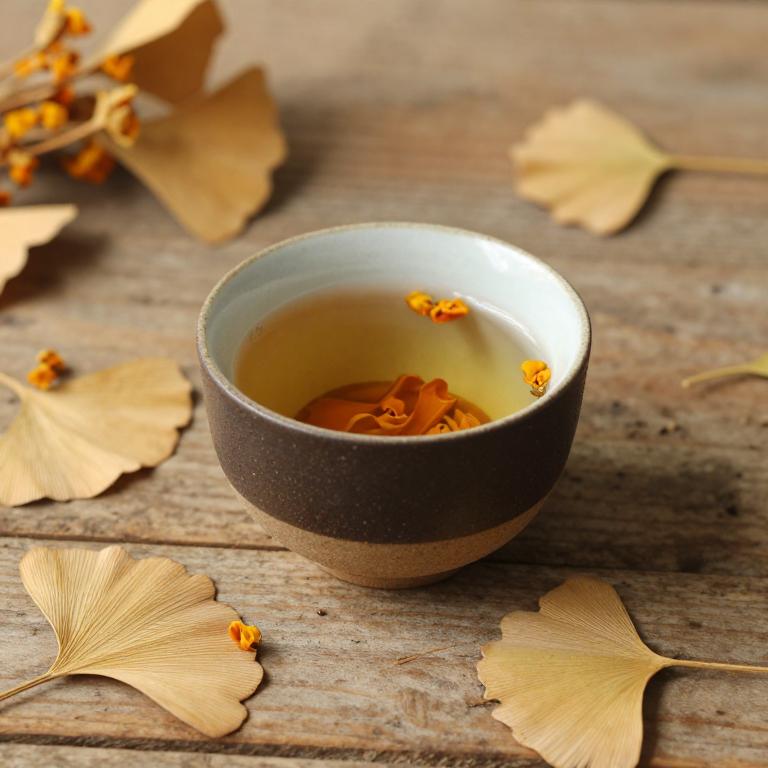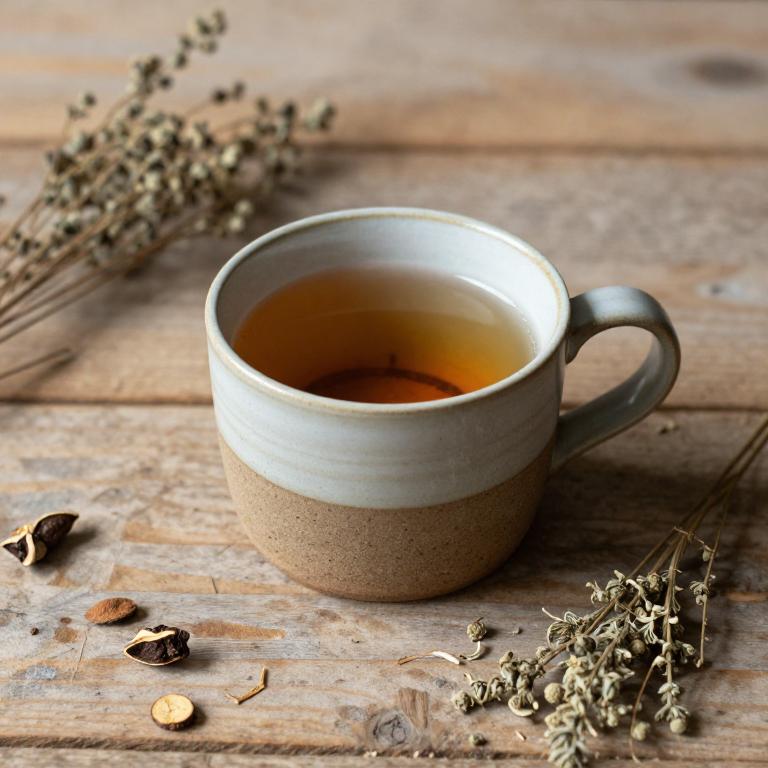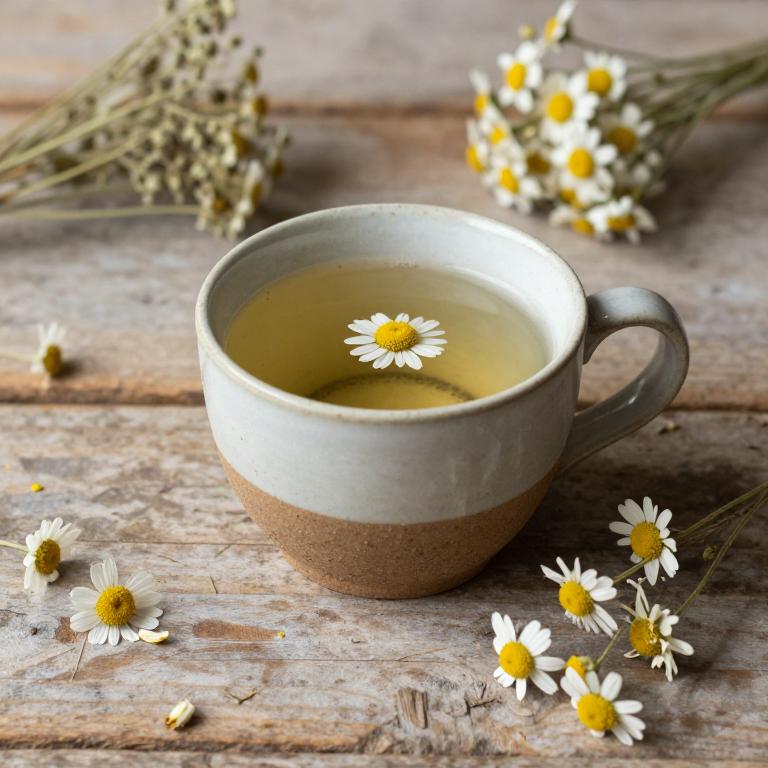10 Best Herbal Teas For Migraine

Herbal teas have gained popularity as a natural remedy for alleviating migraine symptoms, offering a gentler alternative to conventional medications.
Certain herbs, such as feverfew, ginger, and peppermint, are commonly used in herbal teas due to their potential anti-inflammatory and analgesic properties. These teas may help reduce the frequency and intensity of migraines by promoting relaxation and improving blood circulation. However, it is important to consult with a healthcare provider before incorporating herbal teas into a migraine management plan, as individual responses can vary.
While herbal teas may provide relief for some, they should not replace professional medical advice or treatment for severe or chronic migraines.
Table of Contents
- 1. Valerian (Valeriana officinalis)
- 2. Ginkgo (Ginkgo biloba)
- 3. St. john's wort (Hypericum perforatum)
- 4. Stinging nettle (Urtica dioica)
- 5. Rosemary (Rosmarinus officinalis)
- 6. Ceylon cinnamon (Cinnamomum verum)
- 7. Camellia (Camellia sinensis)
- 8. Echinacea (Echinacea purpurea)
- 9. Turmeric (Curcuma longa)
- 10. German chamomile (Chamomilla recutita)
1. Valerian (Valeriana officinalis)

Valeriana officinalis, commonly known as valerian, is a herbal remedy that has been traditionally used to alleviate symptoms of migraine.
The herb contains compounds such as valerenic acid and essential oils, which may help reduce anxiety and promote relaxation, both of which are often associated with migraine attacks. Valerian tea is typically prepared by steeping the dried roots of the plant in hot water, and it is often consumed regularly to support overall nervous system health. While scientific evidence on its effectiveness for migraines is limited, some studies suggest it may have a mild sedative effect that could help ease migraine-related tension.
As with any herbal remedy, it is advisable to consult a healthcare professional before using valerian tea, especially if you are taking other medications or have underlying health conditions.
2. Ginkgo (Ginkgo biloba)

Ginkgo biloba herbal tea is often used for its potential benefits in improving circulation and cognitive function, which may help alleviate symptoms of migraines.
This ancient tree's leaves contain flavonoids and terpene lactones, which are believed to have antioxidant and anti-inflammatory properties that could reduce migraine frequency and severity. While some studies suggest that ginkgo biloba may help with migraine prevention, more research is needed to confirm its efficacy and safety. It is important to consult a healthcare provider before using ginkgo biloba, especially for those on medication or with existing health conditions.
When consumed as a tea, ginkgo biloba is generally considered safe in moderate amounts, though it may cause side effects such as headaches or gastrointestinal discomfort in some individuals.
3. St. john's wort (Hypericum perforatum)

Hypericum perforatum, commonly known as St. John's Wort, has been traditionally used in herbal teas to support emotional well-being and may offer some relief for migraine sufferers.
While it is more widely recognized for its antidepressant properties, some studies suggest that its anti-inflammatory and analgesic compounds may help reduce the frequency and intensity of migraine attacks. When consumed as a tea, hypericum perforatum is believed to promote relaxation and reduce stress, which are common triggers for migraines. However, it is important to note that St. John's Wort can interact with various medications, so it should be used under the guidance of a healthcare professional.
Despite its potential benefits, more research is needed to fully understand its efficacy and safety in treating migraines specifically.
4. Stinging nettle (Urtica dioica)

Urtica dioica, commonly known as stinging nettle, has been traditionally used in herbal medicine for its potential health benefits, including alleviating symptoms of migraine.
When prepared as a herbal tea, stinging nettle may help reduce inflammation and support overall nervous system health, which are key factors in migraine management. The tea is typically made by steeping dried leaves in hot water, and it is often consumed regularly to experience its potential therapeutic effects. Some studies suggest that the compounds in stinging nettle, such as flavonoids and antioxidants, may contribute to its anti-inflammatory and analgesic properties.
However, while it is generally considered safe, individuals should consult with a healthcare professional before using stinging nettle tea, especially if they are on medication or have underlying health conditions.
5. Rosemary (Rosmarinus officinalis)

Rosmarinus officinalis, commonly known as rosemary, is a fragrant herb widely used in herbal teas for its potential benefits in alleviating migraine symptoms.
The essential oils in rosemary, particularly cineole and camphor, are believed to have antispasmodic and analgesic properties that may help reduce the intensity and frequency of migraines. Drinking rosemary herbal tea can promote relaxation and improve circulation, which may support headache relief and reduce stress-related triggers. It is often combined with other herbs like ginger or peppermint to enhance its therapeutic effects.
While rosemary tea is generally safe, it is advisable to consult a healthcare professional before using it as a regular remedy for migraines.
6. Ceylon cinnamon (Cinnamomum verum)

Cinnamomum verum, commonly known as true cinnamon, has been traditionally used in herbal teas to help alleviate symptoms of migraine.
The essential oils in cinnamon, particularly cinnamaldehyde, possess anti-inflammatory and antioxidant properties that may help reduce the frequency and intensity of migraine attacks. When brewed into a soothing herbal tea, cinnamon can be consumed regularly as a natural remedy to support headache relief and overall wellness. Some studies suggest that the aromatic compounds in cinnamon may influence neurotransmitter activity, potentially easing tension and pain associated with migraines.
However, while cinnamon tea may offer supportive benefits, it should not replace professional medical advice or treatment for chronic migraine conditions.
7. Camellia (Camellia sinensis)

Camellia sinensis, the plant from which green, black, and white teas are derived, has been traditionally used for its potential health benefits, including its effects on migraine relief.
Studies suggest that the polyphenols and caffeine present in Camellia sinensis may help reduce migraine frequency and severity by improving cerebral blood flow and reducing inflammation. However, the impact of herbal teas made from Camellia sinensis on migraines can vary depending on the specific preparation and individual response. While some people find that moderate consumption of these teas helps alleviate migraine symptoms, others may experience increased headache due to caffeine sensitivity.
It is advisable to consult a healthcare professional before using Camellia sinensis-based teas as a treatment for migraines.
8. Echinacea (Echinacea purpurea)

Echinacea purpurea, commonly known as purple coneflower, is a popular herbal remedy often used in teas to support immune health and reduce inflammation.
While it is traditionally used for colds and infections, some studies suggest that echinacea may have potential benefits for reducing the frequency and severity of migraines due to its anti-inflammatory and antioxidant properties. The active compounds in echinacea, such as alkamides and polysaccharides, may help modulate the body's inflammatory response, which is often linked to migraine activity. However, more research is needed to fully understand its efficacy for migraines, and it is generally recommended to consult a healthcare provider before using echinacea as a treatment for migraines.
Despite its potential, echinacea should not replace prescribed medications without medical guidance.
9. Turmeric (Curcuma longa)

Curcuma longa, commonly known as turmeric, has been traditionally used for its anti-inflammatory and antioxidant properties, making it a popular ingredient in herbal teas aimed at alleviating migraine symptoms.
The active compound in turmeric, curcumin, is believed to reduce inflammation and oxidative stress, which are often associated with migraine attacks. Herbal teas made from curcuma longa may help soothe headaches and reduce the frequency of migraines by supporting overall brain health and reducing nerve sensitivity. However, while some studies suggest potential benefits, more research is needed to confirm its efficacy as a primary treatment for migraines.
When consumed as part of a balanced diet or herbal regimen, curcuma longa tea may offer a natural, complementary approach to managing migraine symptoms.
10. German chamomile (Chamomilla recutita)

Chamomilla recutita, commonly known as German chamomile, has been traditionally used for its calming and anti-inflammatory properties, making it a popular choice in herbal teas for migraine relief.
The essential oils in chamomile, particularly bisabolol and chamazulene, are believed to help reduce inflammation and ease tension, which are common contributors to migraine headaches. Drinking chamomile tea regularly may help prevent migraines by promoting relaxation and improving sleep quality, both of which are critical in migraine management. While scientific evidence supporting its efficacy is still emerging, many individuals report a reduction in migraine frequency and intensity after incorporating chamomile into their routine.
As with any herbal remedy, it is advisable to consult a healthcare provider before using chamomile, especially if you are on medication or have underlying health conditions.